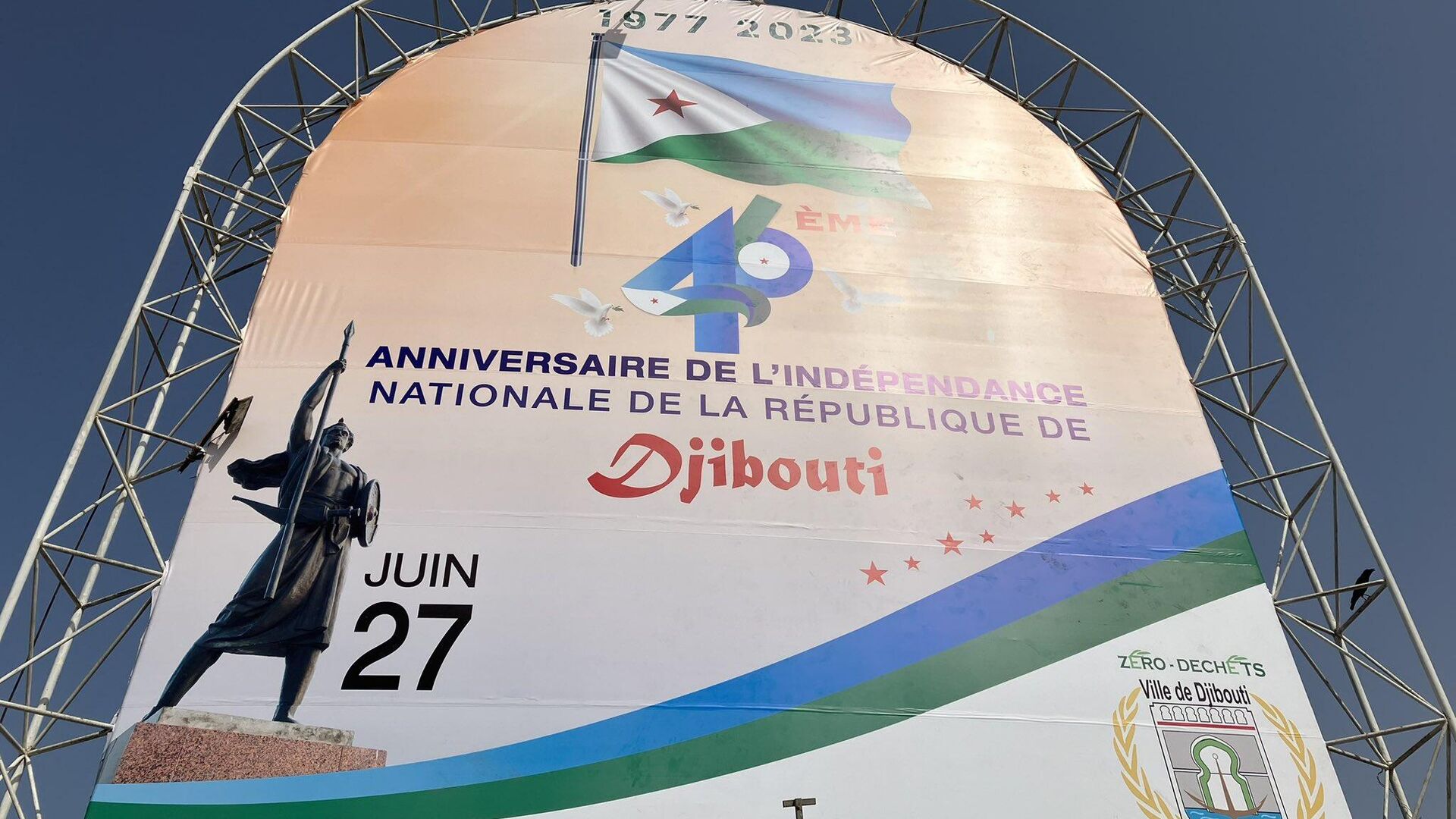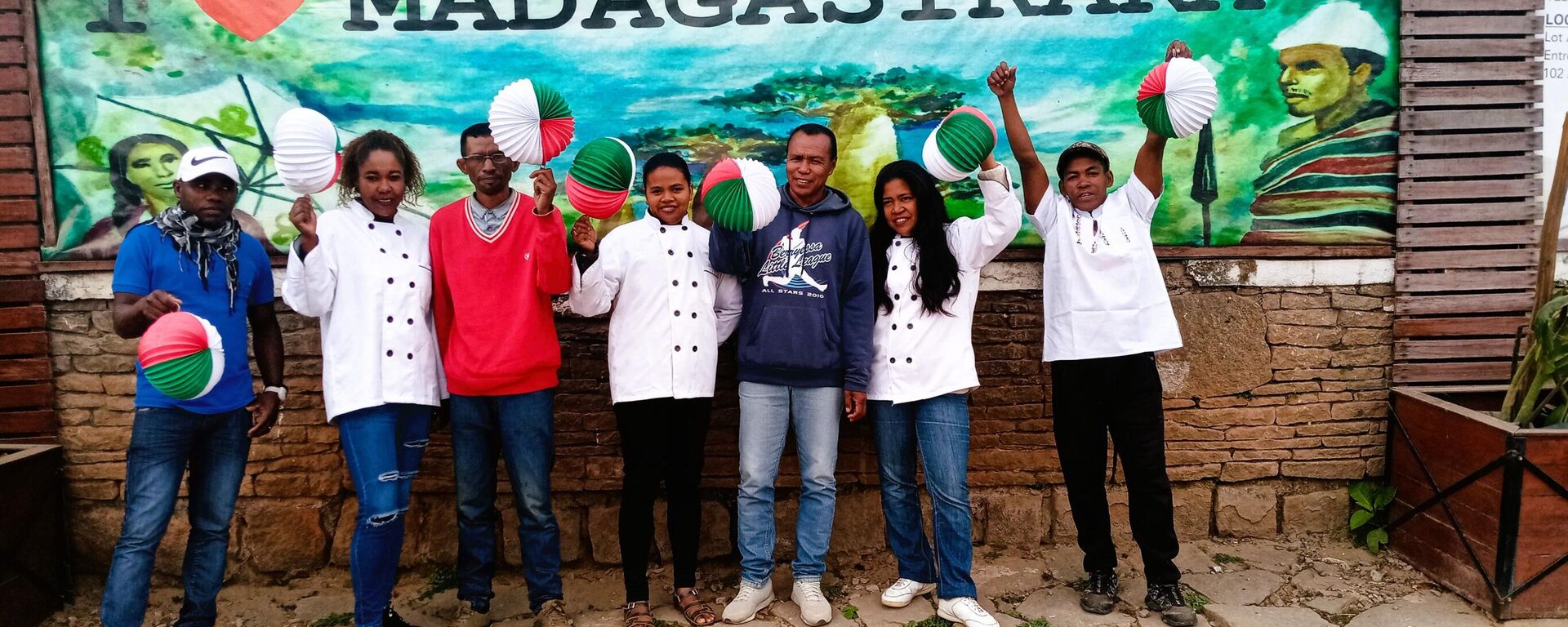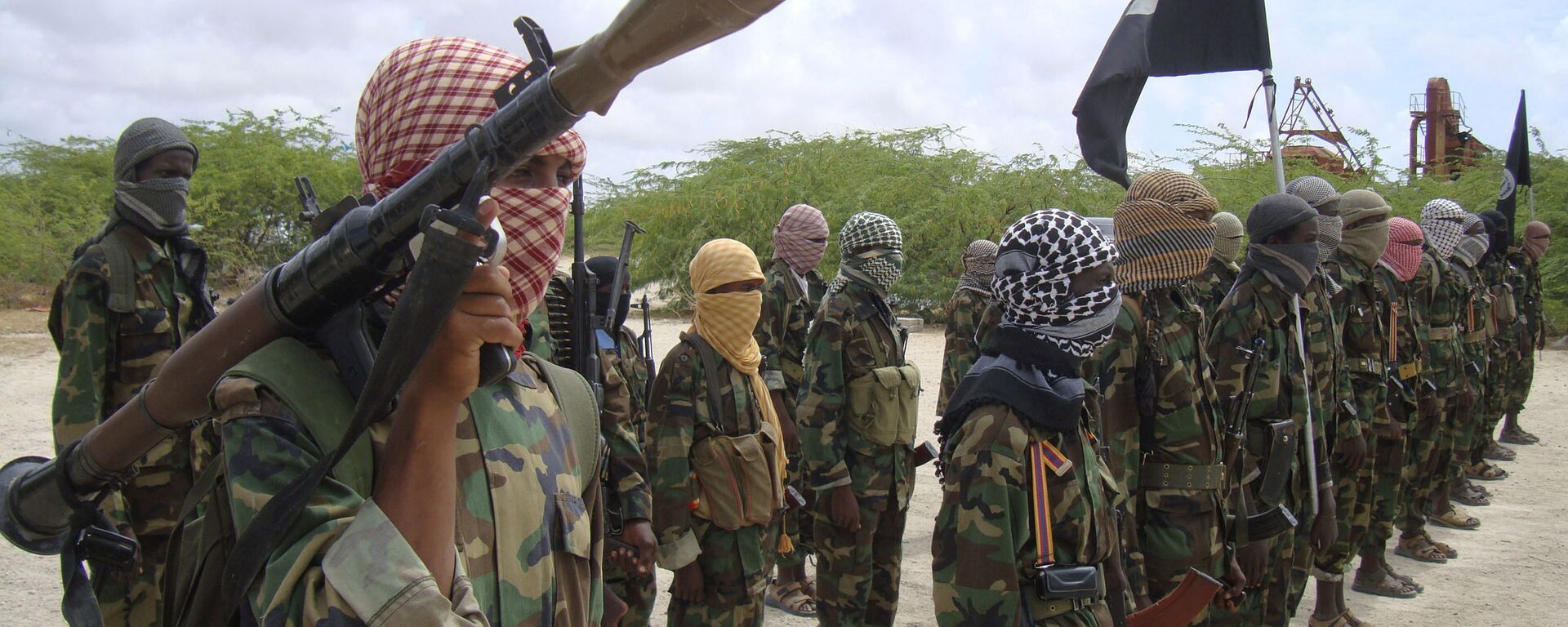https://en.sputniknews.africa/20230627/djibouti-independence-day-looking-back-at-nations-path-to-political-freedom-1060186955.html
Djibouti Independence Day: Looking Back at Nation's Path to Political Freedom
Djibouti Independence Day: Looking Back at Nation's Path to Political Freedom
Sputnik Africa
On June 27, Djibouti celebrates Independence Day, a national holiday that marks the country's declaration of independence from France in 1977. The celebrations... 27.06.2023, Sputnik Africa
2023-06-27T14:23+0200
2023-06-27T14:23+0200
2024-04-25T10:22+0200
features
east africa
djibouti
independence
holidays
colonialism
referendum
polls
france
history
https://cdn1.img.sputniknews.africa/img/07e7/06/1b/1060187904_0:192:2048:1344_1920x0_80_0_0_46ee148be2352903c7305bf8894bbd55.jpg
Gaining independence was a long-awaited and remarkable achievement for the small African nation on the Horn of Africa. The majority of the population of Djibouti voted for this step in a referendum held on the issue in May, 1977. As the country is commemorating one of the most important days in its history, Sputnik Africa takes a glimpse at major events in the Djiboutians' struggle for freedom and independence, as well as at the way how the nation marks the holiday nowadays. Referendums on Independence The country's main traditional ethnic groups, the Afars and the Issas (with the latter being a Somali clan) managed to successfully achieve independence from French rule in a democratic way.From 1896 to 1946, the territory of modern Djibouti was a French colony called French Somaliland. Later, the area became a French overseas territory with its legislature and representation in the French parliament.In 1958, shortly before neighboring Somalia's independence in 1960, the first referendum on the fate of the territory was held. The residents voted to decide whether to proclaim a sovereign state joining the Somali Republic or continue association with France. The polls turned out in favor of the latter.The results indicated that the area would remain under French control. However, many of the Somali people of Djibouti voted for independence in hopes of a unified Somalia. After the referendum, there were allegations of electoral rigging, with people claiming that the votes weren't counted correctly and that many ballots were falsified during the voting. Following protests and demonstrations against the French rule, in 1967, another referendum was held. Initially, it seemed that the connection with France would remain, although it would become weaker than it had been in the past. By this time, in 1960, Somalia had already gained independence. The majority of ethnic Somalis living in Djibouti voted for independence for the second time. However, the vote count was again in favor of the protectorate of France. The second plebiscite was also marred by reports of voter fraud on the part of the French authorities. Shortly after the referendum, French Somaliland was renamed French Territory of the Afars and the Issas.On May 8, 1977, the third referendum took place. This time, the vote count showed that about 98% of the inhabitants voted for the independence of Djibouti. Moreover, there were no allegations of vote-rigging from either side. The Republic of Djibouti was established on June 27, 1977. How Djibouti Observes Independence DayThe holiday is usually marked with large celebrations across the country. The main ceremony takes place in Djibouti, the eponymous capital of the country. The national flag is hoisted at the Presidential palace. The Djiboutian president lays a wreath at the Monument of Martyrs and holds a military parade. Then, he delivers a speech to the nation on the occasion of Independence Day. During the day, festivities and celebratory events usually include flag-raising ceremonies, parades, fireworks, fairs, concerts and other events that celebrate the country's history and culture.
https://en.sputniknews.africa/20230626/madagascar-celebrates-independence-day-1060172181.html
https://en.sputniknews.africa/20230619/somalia-shapes-security-apparatus-on-eve-of--au-missions-departure-1060027946.html
east africa
djibouti
france
Sputnik Africa
feedback@sputniknews.com
+74956456601
MIA „Rossiya Segodnya“
2023
News
en_EN
Sputnik Africa
feedback@sputniknews.com
+74956456601
MIA „Rossiya Segodnya“
Sputnik Africa
feedback@sputniknews.com
+74956456601
MIA „Rossiya Segodnya“
east africa, djibouti, independence, holidays, colonialism, referendum, polls, france, history
east africa, djibouti, independence, holidays, colonialism, referendum, polls, france, history
Djibouti Independence Day: Looking Back at Nation's Path to Political Freedom
14:23 27.06.2023 (Updated: 10:22 25.04.2024) On June 27, Djibouti celebrates Independence Day, a national holiday that marks the country's declaration of independence from France in 1977. The celebrations usually involve military parades, concerts, political speeches, and other cultural and entertainment programs.
Gaining independence was a long-awaited and remarkable achievement for the small African nation on the Horn of Africa. The majority of the population of Djibouti voted for this step in a referendum held on the issue in May, 1977.
As the country is commemorating one of the most important days in its history, Sputnik Africa takes a glimpse at major events in the Djiboutians' struggle for freedom and independence, as well as at the way how the nation marks the holiday nowadays.
Referendums on Independence
The country's main traditional ethnic groups, the Afars and the Issas (with the latter being a Somali clan) managed to successfully achieve independence from French rule in a democratic way.
From 1896 to 1946, the territory of modern
Djibouti was a French colony called French Somaliland. Later, the area became a French overseas territory with its legislature and representation in the French parliament.
In 1958, shortly before neighboring Somalia's independence in 1960, the first referendum on the fate of the territory was held. The residents voted to decide whether to proclaim a sovereign state joining the Somali Republic or continue association with France. The polls turned out in favor of the latter.
The results indicated that the area would remain under French control. However, many of the Somali people of Djibouti voted for independence in hopes of a
unified Somalia. After the referendum, there were allegations of electoral rigging, with people claiming that the votes weren't counted correctly and that many ballots were falsified during the voting.
Following protests and demonstrations against the French rule, in 1967, another referendum was held. Initially, it seemed that the connection with France would remain, although it would become weaker than it had been in the past. By this time, in 1960, Somalia had already gained
independence. The majority of ethnic Somalis living in Djibouti voted for independence for the second time. However, the vote count was again in favor of the protectorate of France.
The second plebiscite was also marred by reports of voter fraud on the part of the French authorities. Shortly after the referendum, French Somaliland was renamed French Territory of the Afars and the Issas.
On May 8, 1977, the third referendum took place. This time, the vote count showed that about 98% of the inhabitants voted for the independence of Djibouti. Moreover, there were no allegations of vote-rigging from either side. The Republic of Djibouti was established on June 27, 1977.
How Djibouti Observes Independence Day
The holiday is usually marked with large celebrations across the country. The main ceremony takes place in Djibouti, the eponymous capital of the country. The national flag is hoisted at the Presidential palace. The Djiboutian president lays a wreath at the Monument of Martyrs and holds a military parade. Then, he delivers a speech to the nation on the occasion of Independence Day.
During the day, festivities and
celebratory events usually include flag-raising ceremonies, parades, fireworks, fairs, concerts and other events that celebrate the country's history and culture.



